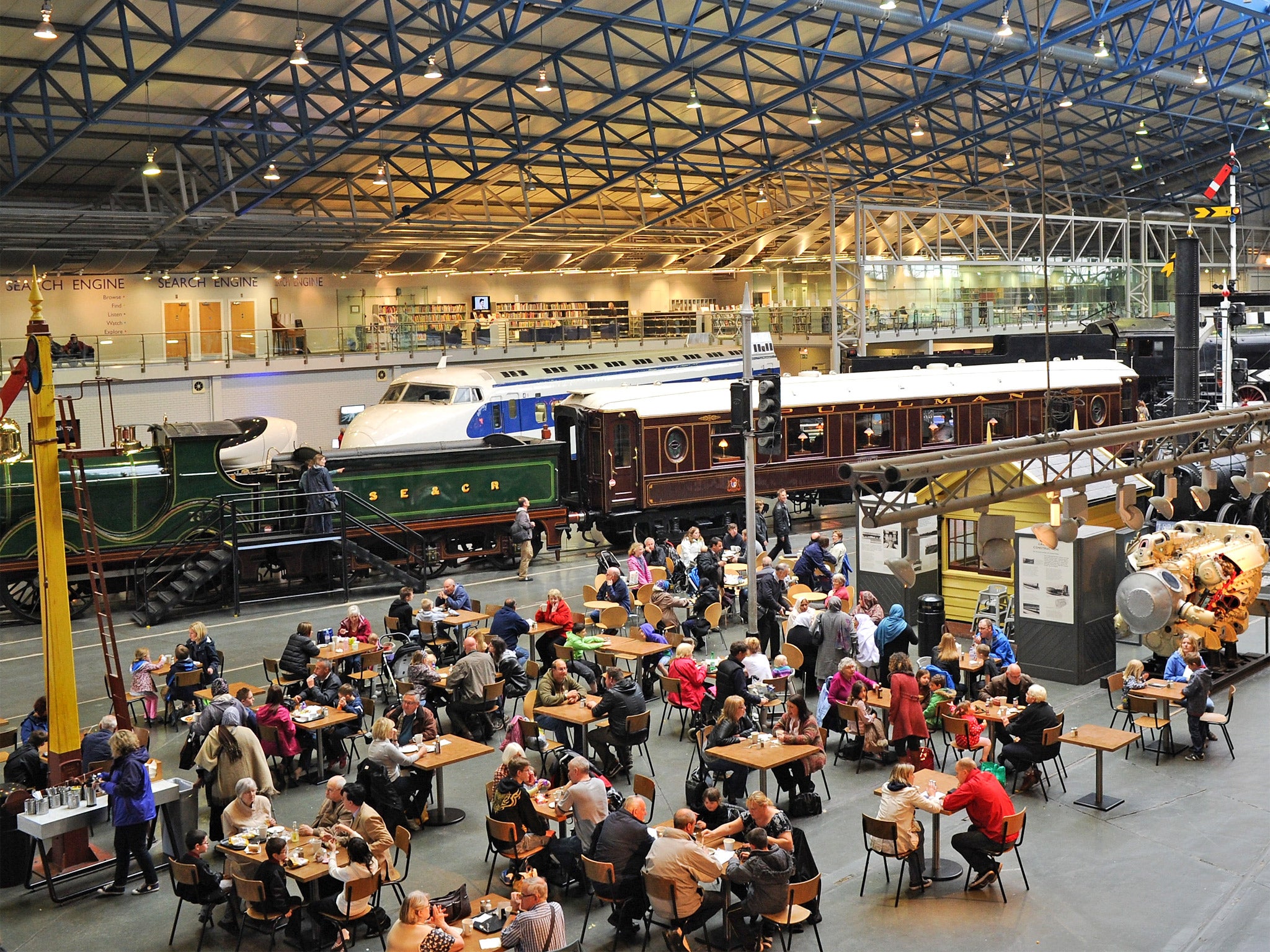Three national museums face prospect of charging for entry - and they're all in the north
National Rail Museum at York and Shildon, Manchester's Museum of Science and Industry (MoSI), and Bradford's National Media Museum warned to brace themselves

Your support helps us to tell the story
From reproductive rights to climate change to Big Tech, The Independent is on the ground when the story is developing. Whether it's investigating the financials of Elon Musk's pro-Trump PAC or producing our latest documentary, 'The A Word', which shines a light on the American women fighting for reproductive rights, we know how important it is to parse out the facts from the messaging.
At such a critical moment in US history, we need reporters on the ground. Your donation allows us to keep sending journalists to speak to both sides of the story.
The Independent is trusted by Americans across the entire political spectrum. And unlike many other quality news outlets, we choose not to lock Americans out of our reporting and analysis with paywalls. We believe quality journalism should be available to everyone, paid for by those who can afford it.
Your support makes all the difference.Claims that three national museums face the prospect of charging for admission or even closure as a result of Government budget cuts are prompting fears of a new north-south divide.
The National Rail Museum at York and Shildon, Manchester's Museum of Science and Industry (MoSI), and Bradford's National Media Museum have been warned to brace themselves for a radical shake-up as they battle against a mounting financial deficit.
The collections, which were visited by more than two million people last year, are seen as central to the economic and cultural prosperity of the north of England.
But a statement by the Science Museum Group, which also represents the Science Museum in London, has warned that it was considering all options to help balance the books ahead of this month's comprehensive spending review.
The group said that despite making significant cost reductions - including shaving £2m off the annual wage bill - the museums faced a "significant annual deficit" in 2014/15.
"The Science Museum Group has to address a large projected operating deficit from 2014 onwards and is assessing a range of options to address this situation," it said.
The recommendations will be put to the board of trustees - who include former BBC chairman Michael Grade and Cambridge physicist Professor Dame Athene Donald - in the autumn.
The suggestion of closure provoked outrage from the north's political leaders and bafflement among scientists.
Professor Brian Cox, an academic at Manchester University, said he doubted that anyone was "stupid enough pick this fight". He tweeted: "If threat to our museums is real (I cannot believe it is) it demonstrates reckless disregard for our future for short term financial 'gain'."
Dave Green, leader of Bradford City Council, home to the National Media Museum which houses one of the world's most important photographic archives, said the three northern museums were left feeling vulnerable.
"The issue is that the science museums are not just visitor attractions but are part of the effort to regenerate all three of these northern cities and linking in with trying to encourage people to take an interest in science and technology," he said.
Manchester MP and former council leader Graham Stringer warned that areas outside the capital were in danger of being even further squeezed.
"I'm appalled at the idea we will end up with only museums in London. Something like 90 per cent of the funding for art galleries and museums goes into London already. It's an extraordinary amount," Mr Stringer said.
The group received £38.3m in grant aid from the Department of Culture, Media and Sport in 2011/12 which accounts for around 60 per cent of its income.
A DCMS spokesman said the decision on how the money was spent was an "operational matter" for the group.
The group's director Ian Blatchford is expected to outline the scale of the crisis facing the museums at a briefing in London tomorrow, Wednesday.
One suggestion favoured by the northern cities is to switch funding from Vince Cable's Department for Business, Skills and Innovation from the DCMS in an effort to reflect the contribution to education and the regional economy.
In the group's most recent annual report Mr Blatchford appeared optimistic over the future financial outlook. "Given the choppy economic climate, I ought to be pessimistic about our agenda for expansion. New ambitions need resources to make them a reality. Yet the strong radio signals received from those with the money and connections to realise our vision have been encouraging," he said.
...and £100,000 prize also heads south
The William Morris Gallery, which reopened last year at the childhood home of the British Arts and Crafts pioneer following a £5m overhaul, has been named Museum of the Year. The villa in Walthamstow, east London, took the £100,000 prize – awarded by the Art Fund to the institution which has best demonstrated excellence and innovation in the previous year. The Georgian house incorporates touch screens and interactive activities to show Morris’s passion for philosophy and politics as well as his famous wallpaper designs.
The £10,000 Clore Award went to the Hepworth Wakefield art gallery in West Yorkshire for its “world-class” education programme.
Join our commenting forum
Join thought-provoking conversations, follow other Independent readers and see their replies
Comments